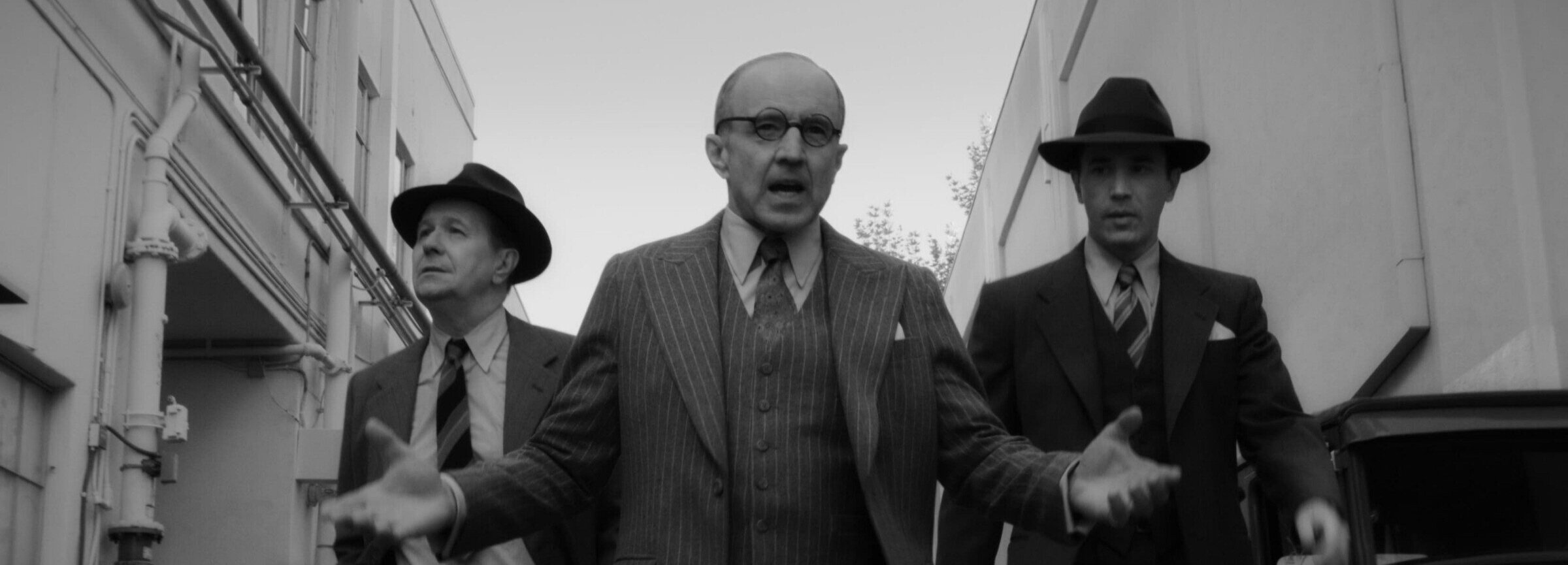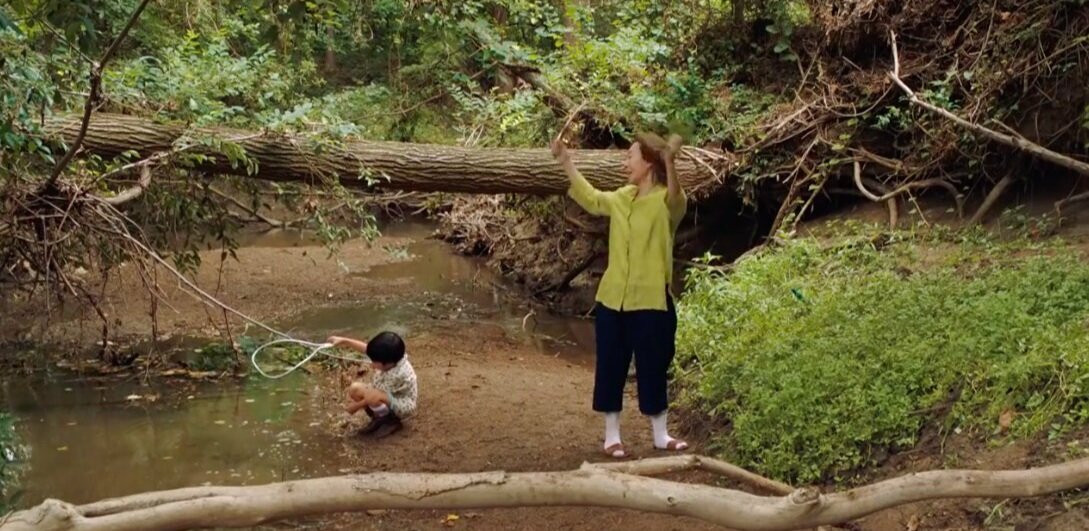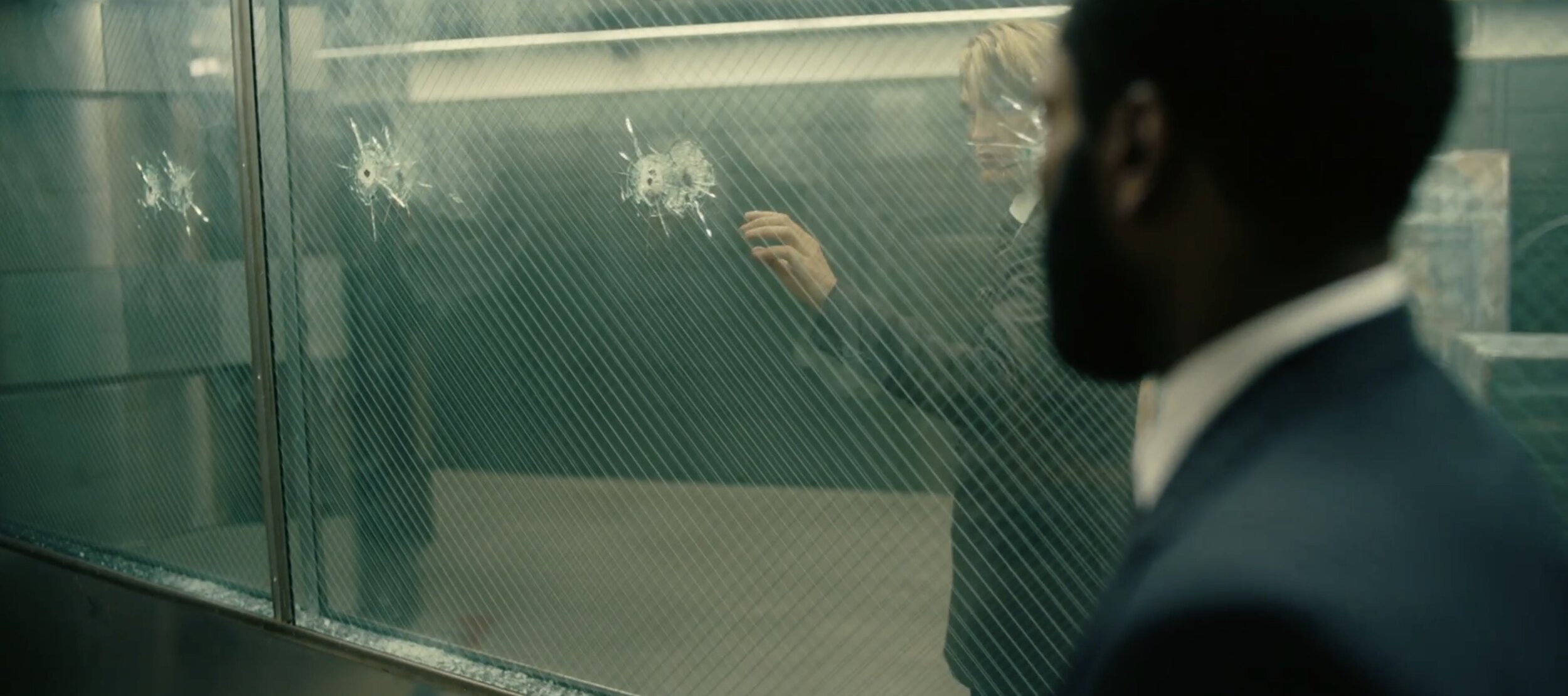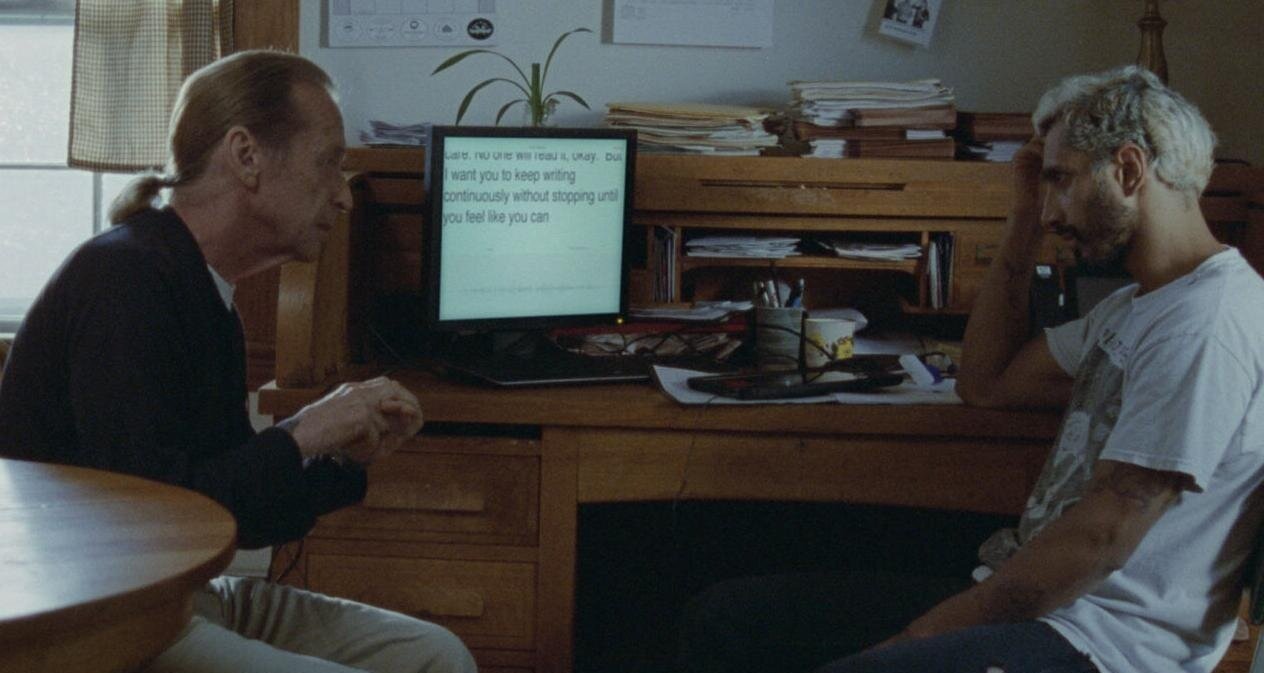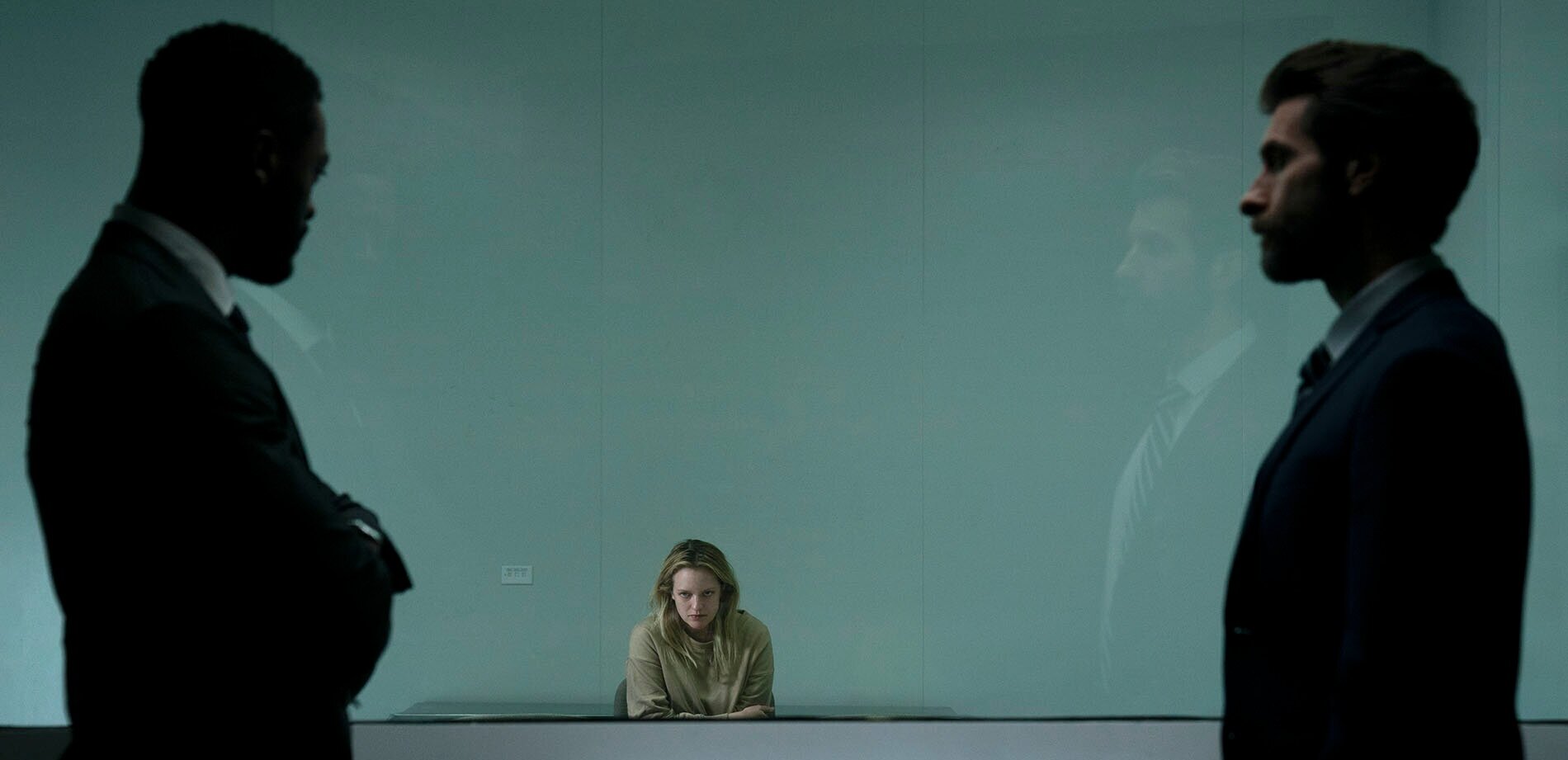The Year in Review: FilmSpeak’s Top Ten Films of 2020
MOVIES ARE THE THING THAT GOT THE FILMSPEAK TEAM THROUGH THE NIGHTMARE KNOWN AS 2020. BEFORE WE VENTURE INTO 2021, TAKE A LOOK AT THE TEN FILMS WE THOUGHT WERE THE BEST TO COME OUT OF HUMANITY’S YEAR OF HELL.
To slightly modify Aaron Sorkin’s favorite episode title… what kind of year has it been.
2020 has finally - mercifully - come and gone. The world was laid siege to early in the year by a pandemic that forced many countries in the world - including the United States and Canada, home to nearly the entire FilmSpeak team - into wide-reaching and intensive lockdowns. Businesses of all kinds were impacted, cinema being one of the most damagingly hit. With theaters shutting their doors across North America, most of 2020’s biggest releases had no place to be released into other than streaming. While many films - including most of the list you are about to read - did find homes on Netflix, Prime Video, and other similar platforms, just as many were instead delayed to 2021 and beyond by studios and filmmakers alike who did not want to rob their art, or their fans, of a proper cinematic experience.
Everyone reading this is doubtlessly aware of how difficult last year was, and I don’t want to turn FilmSpeak into a soapbox, so to again paraphrase Sorkin… it’s been a year.
However, there were some positives in 2020, especially for FilmSpeak. Look at where the site was a year ago: most of us weren’t even here. Speaking for myself, I had only just met Griffin, and I was just a guy who loved movies. The idea of me writing professionally for a publication such as FilmSpeak was entirely foreign to me even just a few months ago. 2020 saw the debut articles and reviews on the site for no less than eight contributors, myself included. FilmSpeak has grown exponentially in the past year, and the entire team is both honoured to have been a part of that growth, and excited to see how much more the oncoming year has in store.
Additionally, even though some of the films we were most looking forward to seeing got pushed back, there were still a lot of really great films that got us through a really awful time. It was a goal of all of us at FilmSpeak to be able to enter 2021 on as high a note as possible, and to that end, we wanted to compile our top ten films of 2020. A bunch of our contributors got together, submitting individual top ten lists, which were then tallied up to create the aggregate top ten below.
We might not yet boast the staff of dozens that some other film sites have - the reason we’re only doing a top ten as opposed to, say, a top 25, is because less lists equals less films to tally points for - but I think this again ties into our optimism about the future: I anticipate our best of 2021 to be made up of a substantially higher number of individual lists as more talented writers join what we’re doing here.
The arithmetic involved is very simple: for every individual list, the film someone put in first place was awarded 10 points; for the film in second place, 9 points; and so on down the line until the film in tenth place, which was awarded a single point. You may be surprised to know that Eliza Hittman’s broadly acclaimed coming-of-age masterpiece “Never Rarely Sometimes Always” tied with, of all films, “Eurovision Song Contest: The Story of Fire Saga”, the latter presumably receiving one point merely as a joke.
While on the subject of snubs, ours may be the only list out there to not feature “Nomadland”: largely due to the limited ability of our team to see the film in time, it only appeared on one person’s list and, despite its high placement, could not compete with more easily watchable films that showed up on multiple lists. “Boys State”, “Kajillionaire”, “The Way Back”, “Another Round”, “The Wolf of Snow Hollow”, and “The Devil All the Time” were some of the other films that put up a noble fight, but came up just shy in points to make our top ten.
Without further ado, here are the ten biggest cinematic gems to have come out of an absolute loser of a year. - Zach Marsh
#10: “Mank”
Written by Jack Fincher
Directed by David Fincher
#1’s: none (highest #3)
After a six-year absence, director David Fincher returned with a deeply specific, yet personal passion project. Based on a script written by his late father Jack, “Mank” tells the origin story behind the making of “Citizen Kane”. On the surface, it’s a film about the personal toll that can come with being an artist. However, when you dive a little deeper, as we did in our November review, “Mank” is a scathing critique about the Hollywood system of the past and present. From studio heads to political figures who run things behind the scenes, Fincher uses Herman J. Mankiewicz as a vessel to show the audience that this industry is a dark void not equipped for those with a good heart. “Mank” might not be Fincher’s most accessible film, but it’s clearly in line with his tone and vision that we’ve come to know and love over nearly thirty years. Let’s hope it doesn’t take another six years to see his next film. - Ryan McQuade
#9: “Mangrove”
Written by Steve McQueen and Alastair Siddons
Directed by Steve McQueen
#1’s: none (highest #2)
Steve McQueen loves to put a lens on people who are mostly forgotten about in our history books. Whether it is Bobby Sands in “Hunger” or Solomon Northup in “12 Years a Slave”, he finds the raw humanity amongst the tragedy surrounding these figures and how we can truly empathize with their stories. The same could be said for “Mangrove”, the crown jewel in McQueen’s Small Axe anthology of feature films. Following the events leading up to the controversial trial of the Mangrove Nine, we get immersed into a world of beautiful Black culture that is spit upon by the white police officers who canvas their area. Throughout the film, we see brutality, racism, and how being a Black person in London is an extremely uncomfortable way of life. But once the trial begins, the tables are turned and the police are put on their heels when the Mangrove Nine start fighting back to prove just how corrupt the system is. With “Mangrove”, McQueen shines a light on these historical pioneers and shows that racial issues haven’t changed much since 1970. “Mangrove” is elite filmmaking and further cements McQueen as one of the best directors working today. - Ryan McQuade
#8: “Minari”
Written by Lee Isaac Chung
Directed by Lee Isaac Chung
#1’s: 1
Right from its opening shot, there is both a mature sincerity and a childlike innocence to “Minari”, Lee Isaac Chung’s semi-autobiographical and endlessly thought-provoking drama that, in one breath, both deconstructs and reaffirms the American Dream. Even though the film is set in the same 1980s Arkansas that Chung grew up in, there’s a timelessness and universality to the aesthetic of the film that makes it widely relatable: “Minari” speaks to first-generation immigrants; it speaks to their children; it speaks to people with dreams; it speaks to the unfulfilled; and it speaks to those who risk everything in order to provide for their family. Everyone on this planet either is, or has at some point been, at least one of the above. Told primarily from the perspectives of Jacob (Steven Yeun) and his son David (Alan Kim), there’s a deep examination in “Minari” of the former wanting to live up to the oaths he made to his wife and family, and the latter facing the pressure of making his parents proud while dealing with a serious health condition. Lachlan Milne infuses “Minari” with absolutely stunning rural cinematography - it’s probably the most gorgeously shot film of the year - and the score by Emile Mosseri deserves Oscars recognition. Most of all, it’s heartwarming to see how uncontroversial and universally loved “Minari” has been. - Zach Marsh
#7: “The Trial of the Chicago 7”
Written by Aaron Sorkin
Directed by Aaron Sorkin
#1’s: none (highest #5)
Bringing up Aaron Sorkin earlier was no coincidence. With “The Trial of the Chicago 7”, Sorkin takes one of the most infamously mishandled crises in American history - the Vietnam war - and frames a scathing condemnation of it via a favorite genre: the courtroom drama. The film is also about how frequently protesters are scapegoated as the cause of riots, when police escalation and brutality is instead often responsible. Considering 2020 was defined largely by another infamously mishandled crisis - COVID-19 - at the same time that peaceful protesters were beaten and gassed in Lafayette Square so that the clown who mishandled said crisis could pose for a photo op. Sorkin and Netflix could not have chosen a better time to bring us “The Trial of the Chicago 7”, which moves at an incredible pace. It takes a lot of skill to not only make a legal drama compelling, but to have a runtime over two hours that feels like 90 minutes. Sorkin is surely aided by his cast, including a new height for Eddie Redmayne, and completely scene-stealing turns from the unlikely duo of Sacha Baron Cohen and Jeremy Strong. However, even among such gifted performers giving their absolute A-game, Yahya Abdul-Mateen II manages to be top of his class, infusing Bobby Seale with a wealth of dignity, humanity, and conviction that leaves a lasting impression. “The Trial of the Chicago 7” is Sorkin at his best as a writer - topping “A Few Good Men” as his definitive courtroom drama - and really feels like him coming into his own as a director as well. - Zach Marsh
#6: “Da 5 Bloods”
Written by Danny Bilson, Paul De Meo, Kevin Willmott, and Spike Lee
Directed by Spike Lee
#1’s: none (highest #3)
Vietnam stood over a significant portion of this year’s cinema like a haunting memory, one that constantly judges us and refuses to go away. As outlined just above, “The Trial of the Chicago 7” is practically a two-hour condemnation, not only on screen but on a meta level, of an utterly stupid war that cost far too many men their futures, and the United States its soul. Whereas that film critiqued the war from the perspective of people witnessing it from a distance in real time, Spike Lee’s latest masterpiece, “Da 5 Bloods”, takes a group of people who gave the most to fight it firsthand, adds nearly a half-century of grief and PTSD into the mix, and then sends them back into the jungle. “Da 5 Bloods” might actually be the most thematically rich film in this list, as well as the most well-timed: it was released less than a month after the murder of George Floyd, and in the midst of what was only the beginning of an atrocious administrative response to COVID-19. Its scathing condemnation of Vietnam, the disproportionate effect the war had on Black soldiers, and the character of Paul (Delroy Lindo) having turned to Donald Trump after decades of neglect from the country he fought for, tie eerily into current world events, and have only become more relevant in the months since. On a surface level, “Da 5 Bloods” is an incredibly-crafted film. Lee’s bold direction and sharp writing hold up with that of “Do the Right Thing”, and the collection of performances deserves endless praise. This is easily the year’s best ensemble cast: Lindo in particular was probably the odds-on favorite for Best Actor for much of the year until, ironically, his co-star, the late Chadwick Boseman, arguably upstaged him in “Ma Rainey’s Black Bottom”; Boseman’s supporting role here is an unintentional and solemn tribute to his passing, and is so remarkable in its own right that it could possibly see him posthumously nominated in both acting categories. - Zach Marsh
#5: “Tenet”
Written by Christopher Nolan
Directed by Christopher Nolan
#1’s: none (highest #2)
“Tenet” works its way into your mind, and then refuses to vacate it. Easily Christopher Nolan’s most twisted and complex film, it once again re-examines the ideas about time, reality, and life that Nolan introduced 20 years ago in “Memento”, and expanded upon in films like “The Prestige” and “Inception”, and stretches them to their limit. In typical Nolan fashion, we as an audience are left still seeking the answers after the credits roll. We gave “Tenet” a very positive review back in August, but also noted that its complexity can make it somewhat inaccessible to some viewers. Something “Tenet” did specifically for me was finally convert me into being a believer that Nolan not only could - but, indeed, should - direct a James Bond film. It wasn’t the action sequences that did it for me: Nolan has spent most of his career showing that he has the action chops for Bond. It wasn’t even John David Washington’s endlessly charismatic, cool performance or what seemed to be a walk-in closet’s worth of his top-class suits. Instead, it was a single edit, taking Washington’s protagonist instantly from the conclusion of an operation in Mumbai, to the daytime streets of London as he prepares to meet with Michael Caine’s British intelligence asset, that took me right back to the Peter Hunt-edited Bond flicks of the 60s. - Zach Marsh
#4: “Palm Springs”
Written by Andy Siara
Directed by Max Barbakow
#1’s: none (highest #2)
“Palm Springs” was released on Hulu in July, mere months into nationwide stay-at-home orders when we were still in the throes of domestic ennui and yet optimistic about an end to our bedroom boredom. Andy Samberg’s felicitously named Nyles portrayed our collective nihilism towards our new lives and Cristin Milioti’s Sarah aligned with our frustrated attempts to find normalcy. J.K. Simmons’ Roy and the supporting cast also craft fun twists on some timely tropes. On rewatch, I was still laughing out loud at jokes throughout and as a former wedding bartender, those scenes were spot on satire. As a fan of time travel/loop movies, this one makes it look easy without being weighed down by sci-fi jargon but obviously isn’t the point of the story. The cinematography looks great even in the harsh daylight, the love story is charming if not a little manic pixie dream girl-esque and the only crime is that it didn’t get a wide theatrical debut. “Palm Springs” shows how, despite the cyclical mundanity of life, sometimes we just need to learn how to love where you are and what you have. - Tony Helm
#3: “Sound of Metal”
Written by Darius Marder and Abraham Marder
Directed by Darius Marder
#1’s: none (highest #3)
“Sound of Metal” almost feels like a horror film for its first 30 minutes. By placing us directly in the head of Ruben (Riz Ahmed) as his hearing practically evaporates, and keeping us there as his psyche goes with it, you fear, not only for him, but for his girlfriend Lou (Olivia Cooke). It is only when the pair arrive at Joe (Paul Raci)’s rehabilitation center for the deaf that things seem like they can maybe work out somehow: and this is subsequently undercut, not in any grand way, but in small pieces, by the actions Ruben takes in order to reclaim the life he used to have, not understanding that it can never truly return to him. There’s no Shakespearean tragedy here - Ruben doesn’t do anything irredeemable, nor does he destroy his life attempting to repair his hearing - but he does fundamentally change his destiny and, more importantly, himself. This allows Ruben to reconcile the most important things in his life, while the film still presents a realistic portrayal of the trauma and coping that Ruben will have to carry with him beyond the end credits. Ultimately, as our review stated, “Sound of Metal” is about the performances: Ahmed is revelatory here, finally being given the meaty lead role he has deserved for years; and Raci uses a surprisingly small amount of screentime to create a deeply sympathetic, memorable antagonist to Ruben’s desires. - Zach Marsh
#2: “The Invisible Man”
Written by Leigh Whannell
Directed by Leigh Whannell
#1’s: 2
And now: a true, unabashed horror film. Leigh Whannell brings a lifetime love of horror, and over 15 years’ experience writing and directing some of the 21st century’s fan favorite horror films, to a head with “The Invisible Man”. This movie not only holds up as a modern-day horror classic, but is one of the best horror remakes of all time. The amount of tension that Whannell gets out of the simplest things - holding the camera just a moment after characters leave the frame, or suddenly cutting to a POV shot of Elisabeth Moss in the distance - to make the audience think someone could be there, is fully immersive and engaging cinema that not only holds up on repeat viewings, but encourages them. Moss is revelatory here as a woman gaslit by her abusive partner, even in the wake of his death. There’s an important and thoroughly relevant conversation that Whannell is trying to spark here, in between the incredible horror thrills, and “The Invisible Man” is all the better for it. The already-iconic oner in the hallway is worth the price of admission in and of itself, but it’s merely one example of how Whannell holds absolute command over his craft for the entire two-hour runtime. - Zach Marsh
#1: “Soul”
Written by Pete Docter, Mike Jones, and Kemp Powers
Directed by Pete Docter and Kemp Powers
#1's: 3
There are so many layers to the conversation “Soul” constantly tries to engage us in. Even in our ultra-long review last month, it was impossible to give every theme and piece of commentary its proper due. If we were to boil Pixar's existential masterpiece down to one core idea, it would be that “Soul” is a celebration of life. Pixar are certainly not strangers to exploring the meaning of existence - 2017’s “Coco” particularly comes to mind in this respect - but with “Soul”, it feels like the first time that the studio have attempted to actually give us an answer. The film achieves this primarily by immediately endearing us to Joe Gardner, voiced to heart-rending perfection by Jamie Foxx. It's a moment in the opening scene - a simple look of admiration Gardner gives to one of his students for her talents - that informs not only Joe's arc, but is made whole by the beautiful sequence at the climax where Joe reaches an epiphany about life itself. “Soul” also boasts one of the greatest film scores not only in Pixar’s history, but in recent cinema, with Trent Reznor and Atticus Ross crafting beautiful, ethereal pieces that merge seamlessly with Jon Batiste’s loving tribute to New York jazz. Combine that with virtually every frame of “Soul” being a master class in how to create memorable and vivid 3D animation, and Pixar seems to have rediscovered their ability to craft top form storytelling in a movie that stands alongside, perhaps even above, their very best. “Soul” also bears the distinction of topping more of our individual lists than any other 2020 film, and it is for that reason as well as the others mentioned above that FilmSpeak names “Soul” the greatest film of 2020. - Zach Marsh
Thank you to everyone who took the time to read our top ten of 2020, and who has supported FilmSpeak in the past year. The entire team wishes you the best in 2021, and is excited to bring you even more of the content you have enjoyed from us.


